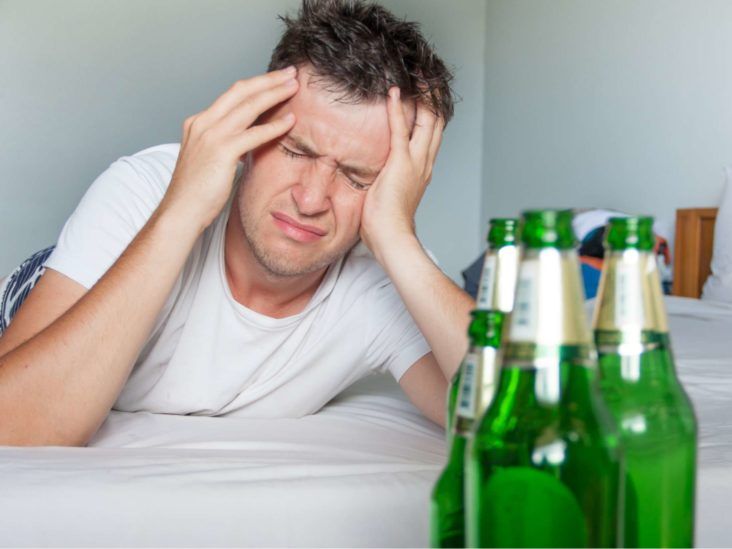Hangovers: What Causes Them and How to Avoid Them
 All alcoholic drinks contain ethanol, a form of pure alcohol that is broken down into another chemical, called acetaldehyde, by the body. If too much acetaldehyde enters the blood, it can cause tiredness, headaches, vomiting and dehydration. These effects are known as a «hangover».The average adult drinks about 6. Scientists don't know exactly why people get hangovers, but there are probably several reasons. First of all, alcohol stops the body from being able to use a chemical called vasopressin, which can cause dehydration.Dark drinks, like red wine and whiskey, may cause worse hangovers than clear drinks because they contain more congeners, chemicals that have been known to cause headaches. Drinks like champagne may also lead to worse hangovers because the bubbles allow alcohol to travel farther into the small intestine, where it quickly enters the blood.Studies have also found that women are more likely to get hangovers because their bodies are usually smaller and have less water. Asians may get worse hangovers for genetic reasons, and about 23% of people say that they don't get hangovers.Many people say that they've found the cure for hangovers, including eating certain foods and even drinking more alcohol the next morning. Scientists say that the best solution is to not drink too much, and if you still get a hangover, take ibuprofen, a medicine used to cure headaches.
All alcoholic drinks contain ethanol, a form of pure alcohol that is broken down into another chemical, called acetaldehyde, by the body. If too much acetaldehyde enters the blood, it can cause tiredness, headaches, vomiting and dehydration. These effects are known as a «hangover».The average adult drinks about 6. Scientists don't know exactly why people get hangovers, but there are probably several reasons. First of all, alcohol stops the body from being able to use a chemical called vasopressin, which can cause dehydration.Dark drinks, like red wine and whiskey, may cause worse hangovers than clear drinks because they contain more congeners, chemicals that have been known to cause headaches. Drinks like champagne may also lead to worse hangovers because the bubbles allow alcohol to travel farther into the small intestine, where it quickly enters the blood.Studies have also found that women are more likely to get hangovers because their bodies are usually smaller and have less water. Asians may get worse hangovers for genetic reasons, and about 23% of people say that they don't get hangovers.Many people say that they've found the cure for hangovers, including eating certain foods and even drinking more alcohol the next morning. Scientists say that the best solution is to not drink too much, and if you still get a hangover, take ibuprofen, a medicine used to cure headaches.

Questions:
1. How much ethanol does the average adult drink per year?
2. Is champagne likely to cause worse hangovers than white wine?
3. What percentage of people say they don't get hangovers?
4. Do you like cocktails? If so, do you know how to make any? If not, why not?
5. What are the most popular alcoholic beverages where you live?





